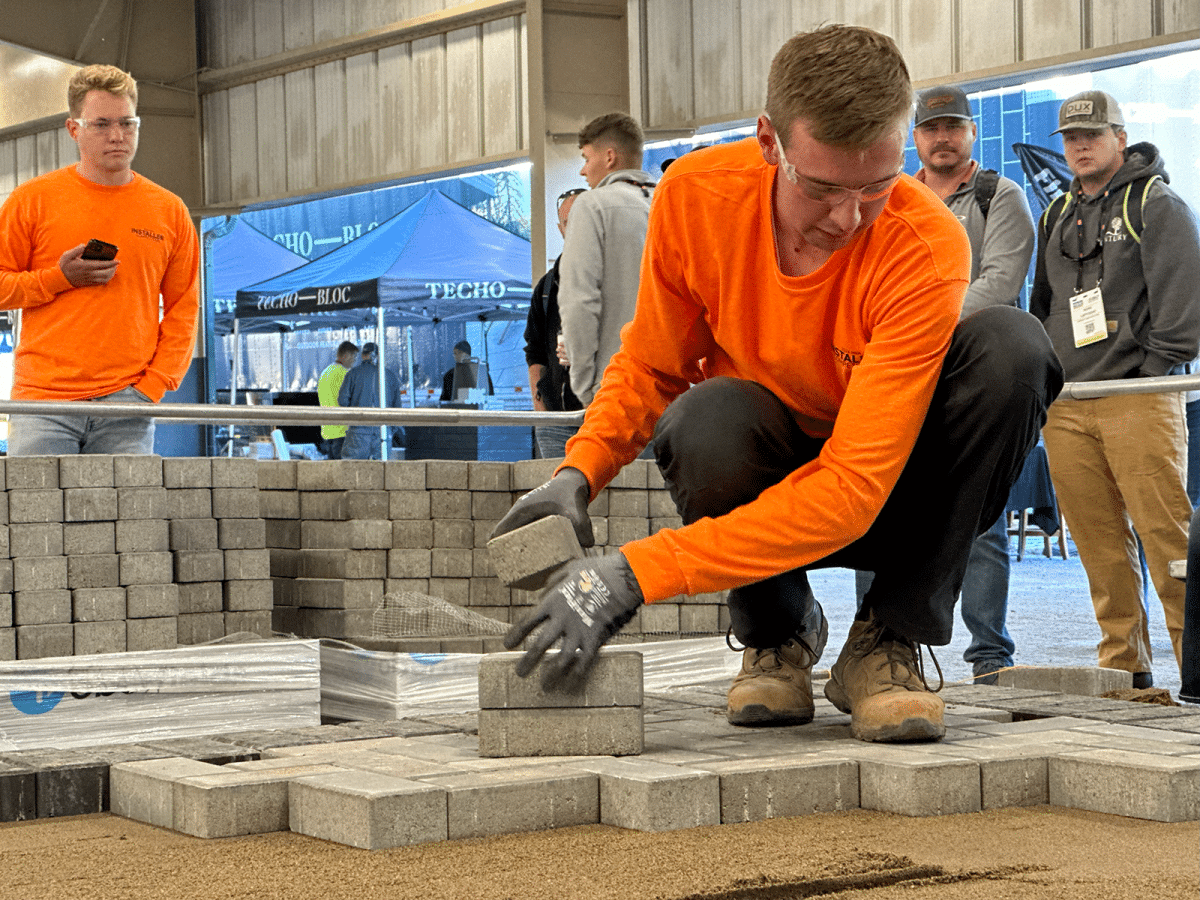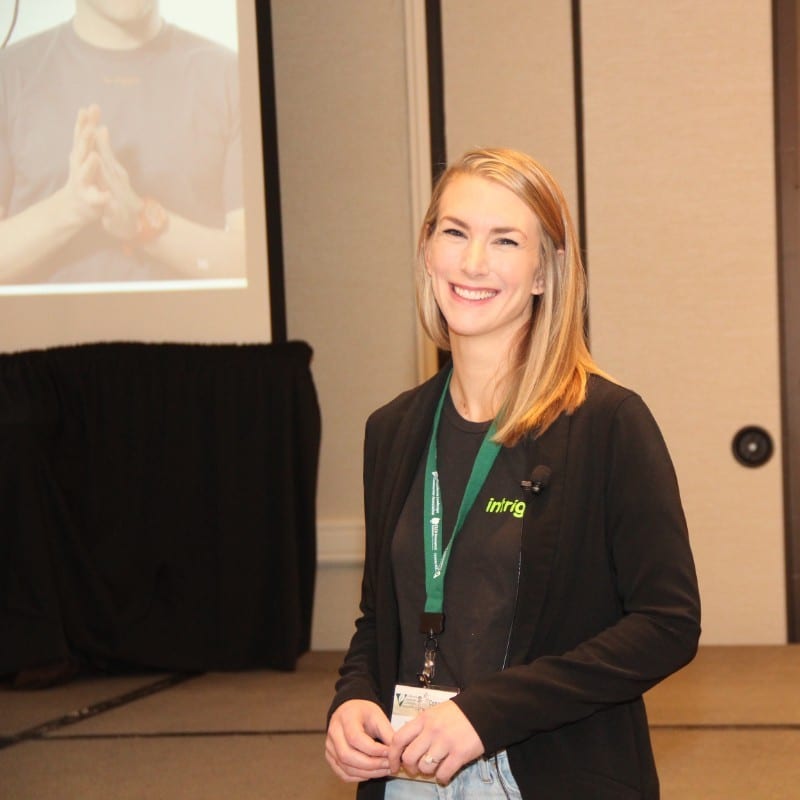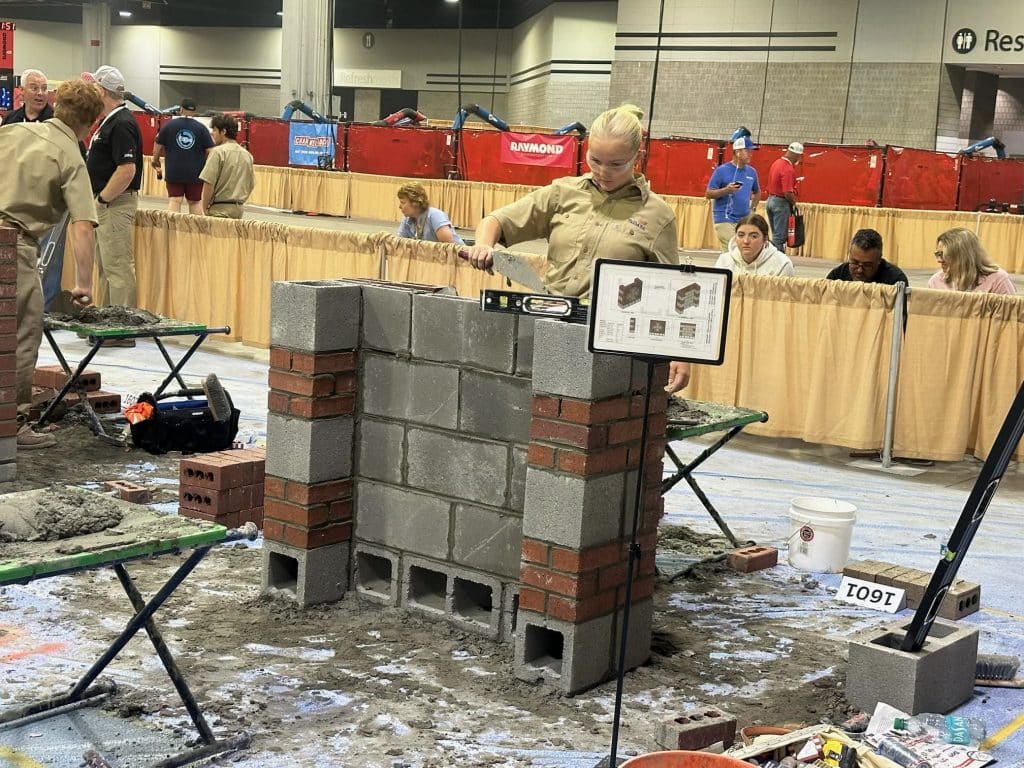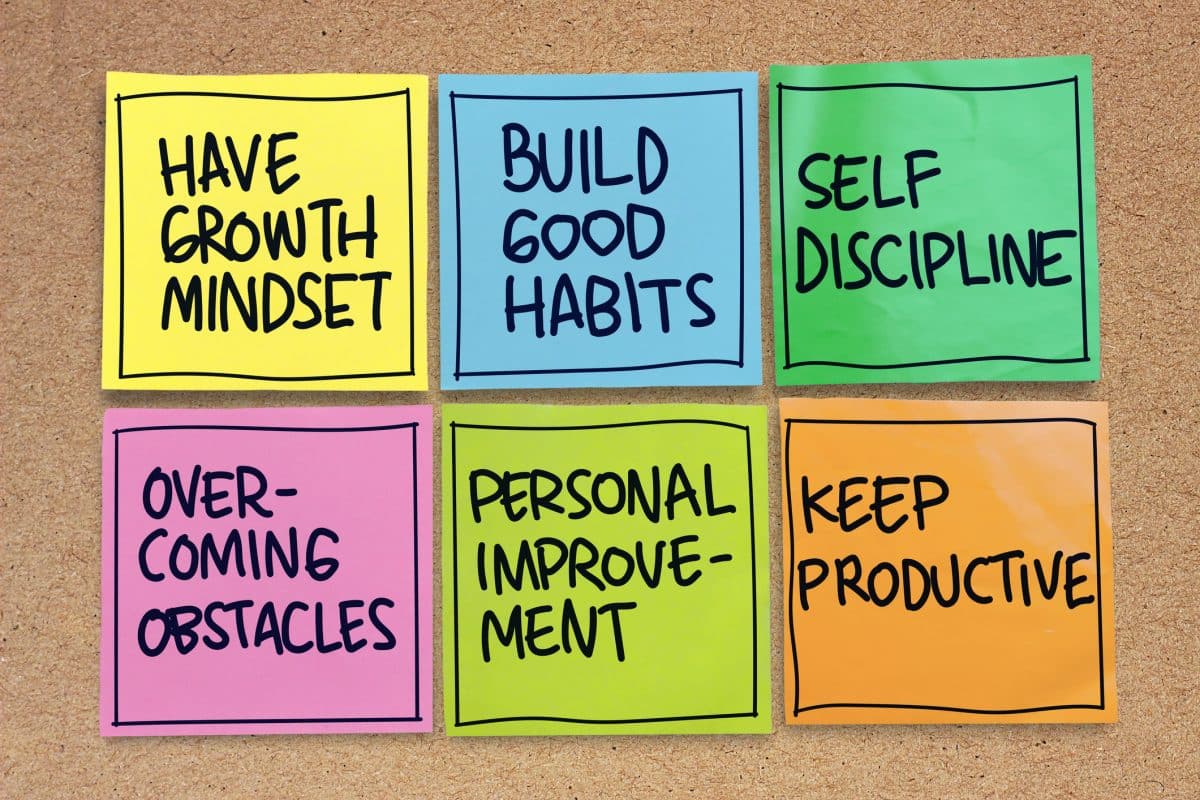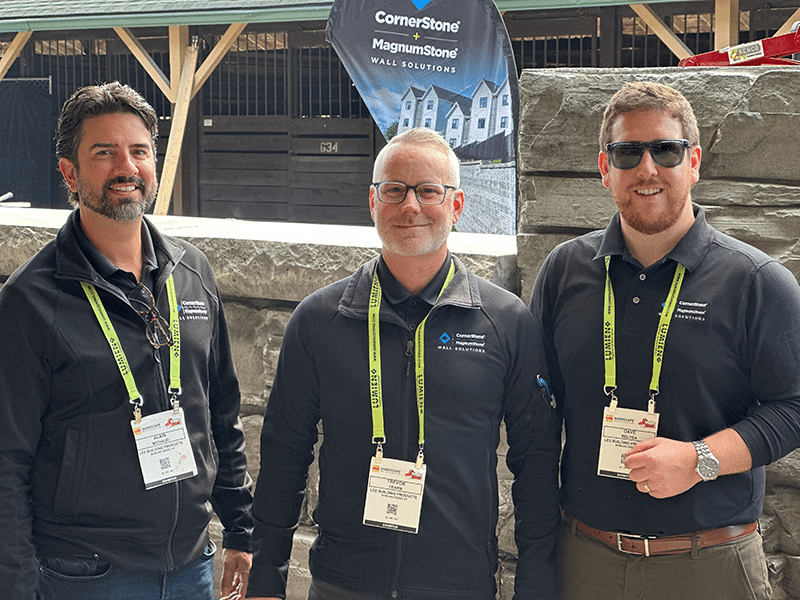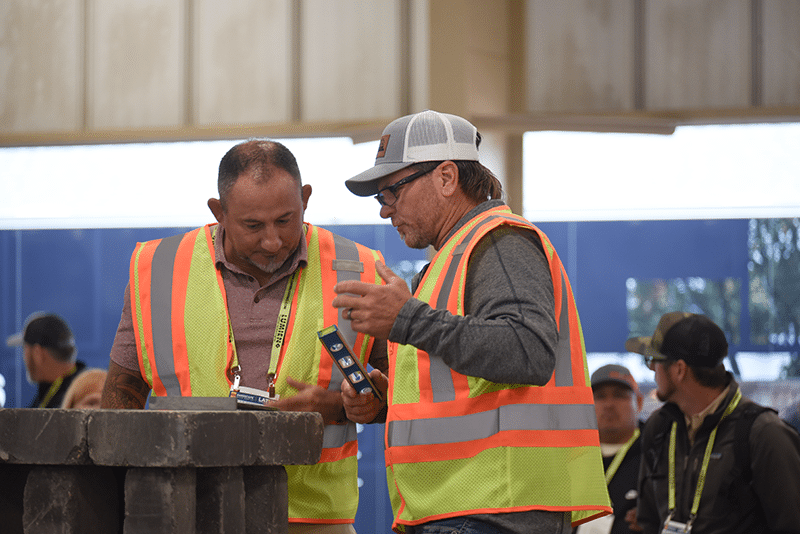Every hardscaper faces a big decision at the start of their career: should you begin by building your own business or gain experience by first working for someone else?
Both routes have their pros and cons. Running your own company means independence, but also risk; working as an employee offers stability and mentorship, but less freedom.
If you’re an aspiring hardscaper wondering where to begin, advice from a few industry professionals can help you find the path that fits your personality, goals, and lifestyle.
Learning Then Leading
Dan Hughes, President of Segmental Systems Inc., spent nine years working for a landscape company before eventually purchasing an established hardscape business. That time as an employee was an education.
“I constantly observed how things were done, good and bad, and compared it all to other companies in the area,” Hughes said. “I learned all the basics of landscaping, sprinklers, different construction methods, and even some landscape maintenance.”
More importantly, he gained crucial management experience.
“The longer I was there, the more experience I got running/managing crews, dealing with customers, knowing what we needed for supplies for the day, planning for the next several days, equipment repair and usage,” he said.
However, Hughes is candid about what he didn’t learn as an employee.
“What I never learned was sales, estimating, overhead, payroll, taxes, and the business end of it all,” he said.
When Hughes started working for Segmental Systems with the intent to purchase it, the owner made it his mission to teach him as much as he could during the transition.
Looking back, Hughes appreciates the foundation his employment years provided, but he also acknowledges the value of buying into an established operation.
“You avoid the struggles of having to do all the work yourself while still trying to find work and build a business. That’s a tall hurdle and I applaud those who have done it successfully. It’s a grind to get there for sure. But buying something existing, partnering up with an established business allows you to focus on building and making things better rather on fighting to survive,” Hughes said.
“…If I were to do it all over again, I would definitely work in the trade for a quality contractor and look to buy in or out that company. Starting from scratch is quite risky, and extremely volatile in the dips in the economy.”
Finding the Right Employer
Weston Zimmerman, founder of SynkedUP, experienced a transformative shift in how he viewed employment, one that ultimately prepared him for entrepreneurship.
Starting as a teenager at Tussey Landscaping installing water features and koi ponds, Zimmerman admits he was initially “your average employee” who “worked hard when I was there, but I wanted the Fridays off and I wanted to go do this, I want to go do that.”
Everything changed after he got married and his priorities shifted. At an Aquascape convention in Chicago, hungry to make more money, he approached CEO Greg Wittstock about job opportunities.
“He looked at me like I had three heads,” Zimmerman said. “And I said, ‘Well, I just want to make more money,’ and you can see that he had heard this 100 times. He said, ‘Go back and talk to your boss and ask him what can you do to make the company more money, so that you can make more money.’”
Zimmerman never looked at employment the same way again.
“My mindset, my perspective as an employee shifted forever from that moment on,” he said.
That shift led Zimmerman to become not just a crew lead, but also Director of Marketing at Tussey, launching their social media presence, YouTube content, filming and editing, and managing their website.
Both Zimmerman emphasizes that not all employment experiences are created equal.
“There’s a key ingredient that has to exist and that is the owner of that company has to be willing to give you the autonomy. I could’ve had the exact same story at Tussey Landscaping, but with a different owner that wasn’t willing to give me the rope to climb and it would’ve failed for both of us,” Zimmerman said.
Instead, Zimmerman was able to really have a seat at the table at Tussey and started to offer ideas for business processes and process optimization. That experience eventually led him to founding SynkedUP, a software company that’s transforming how hardscaping businesses operate.
“I actually would probably encourage going and working for someone for a while, but I would also say in the same way that the employer is interviewing you, in your own mind be interviewing the employer,” Zimmerman said. “If you’re going to work for someone, be considerate and thoughtful about who you’re choosing to work for because that’s a key part of the equation in making that successful.”
Built for Independence
Outside of three years in the military, Gary Stowe, President of Stowe Contracting, Inc., has worked for himself since he was 13. For him, entrepreneurship isn’t just a preference, it’s a necessity.
“I’m not a good employee,” Stowe said. “That’s kind of what people need to understand if they want to go in business. It can’t be, ‘I’d like to go in business.’ It’s, ‘I have to go in business.’”
Stowe’s career path in hardscaping has been unconventional. With a nursing degree and three years in the Army, he spent a decade running an auto repair shop before transitioning to construction in the late 1980s. But while these fields seem widely varied, Stowe said they all really come down to his passion for fixing things.
Each career shift also taught him something valuable about business operations, pricing, and customer relationships, lessons that helped him build a successful hardscaping company.
One pivotal lesson came during his struggling years in the auto repair business. Working 70-hour weeks, he accompanied his wife to their accountant for tax preparation. The accountant looked at their returns and said, “You know, you can apply for food stamps if you want.”
“That was kind of an epiphany for me,” Stowe said. The turning point came when he realized he needed to bid jobs properly and account for real overhead costs. “You can’t look at the job—the parts, the pieces of the job, the labor it takes to do the job—that’s only one small part of it. You’ve got overhead of just being in business, and you have to recognize that.”
For Stowe, the appeal of entrepreneurship is clear.
“The ability to make your own decisions, the flexibility to do that. The ability to turn down customers if it becomes necessary, to pick and choose who your customers are, the type of work you want to do,” he said.
He acknowledges the demands are real and that it is not a traditional 9-5 job. He keeps a notepad by his bed because he wakes up thinking about work and he stresses the constant planning and organization required to run a company. But despite the challenges, he’s found deep satisfaction in his path.
“It’s a very fulfilling lifestyle. It’s a great way to employ yourself and others,” he said. “It gives you a great deal of satisfaction, and it’s well worth all the heartache that you go through.”
The Employee’s Path
Elias Null, Optimas Specialist at Pave Tool, pushes back against the cultural assumption that entrepreneurship is the only path to success or fulfillment.
“Society pushes to have your own business and be your own boss. And that’s great! That really is awesome, but different personalities are different, and you don’t actually need to be your own boss to have a good life,” Null said.
For him, the focus isn’t on titles or ownership, it’s on personal growth.
“The goal for myself would be to be the best version of myself that I can be,” he said. “Life is like a creek, and if you’re just sitting on a creek in a kayak or canoe, you’re going to end up downstream. You have to stay rowing upstream if you’re going to have a better life.”
Null’s perspective is a reminder that career success isn’t one-size-fits-all. For those who thrive in structured environments and prefer to focus on craft over business operations, the employee route can be just as rewarding.
Finding Your Path Forward
Determining the right path for you really depends on honest self-assessment. Consider these questions:
- Are you willing to learn the business side? As Hughes and Stowe discovered, field skills alone won’t sustain a company. You need to understand estimating, overhead, taxes, and cash flow or be willing to learn.
- Are you energized or drained by business management tasks? If paperwork, bidding, payroll, and planning excite you—or at least don’t exhaust you—entrepreneurship might fit. If you’d rather focus purely on the craft, employment could be your path.
- How do you handle uncertainty and financial pressure? Hughes notes that even with an established company, “there were a few times where work was sparse. Very stressful when you have a fairly large monthly payment on a business.” Can you weather those storms?
- Do you need autonomy to be happy? Stowe’s realization that he couldn’t work for others came from recognizing his personality. Some people thrive with structure and clear expectations; others suffocate under them.
- Can you find the right mentor? Both Zimmerman and Hughes benefited enormously from employers willing to invest in their growth. If you choose employment, choose carefully.
There’s no single right answer. The hardscaping industry has room for all approaches.
Whether you choose to work for a quality contractor, buy into an existing business, or strike out on your own from day one, success comes down to dedication, continuous learning, and being honest about who you are and what you need to thrive.
